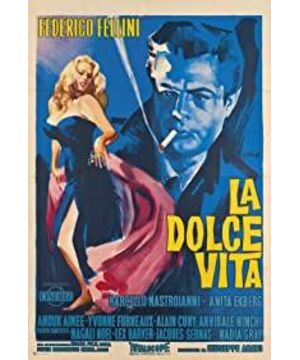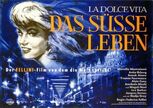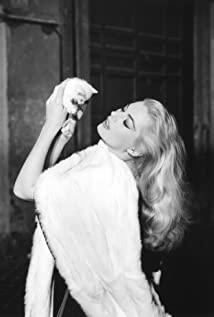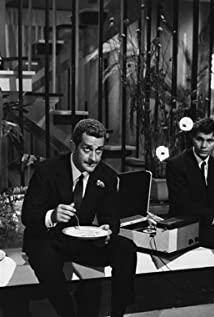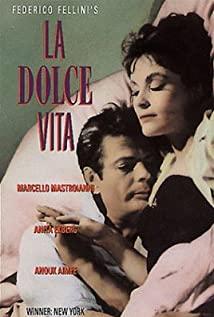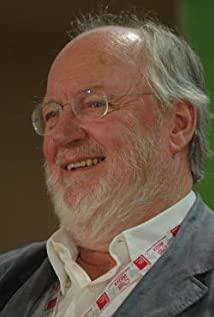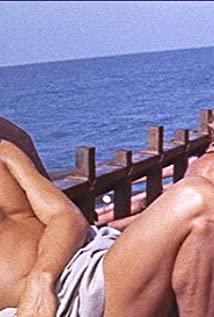Italy is an old Catholic country, but it is also the first to rot and collapse in the Christian world. Boccaccio's "Decameron", Eco's "The Name of the Rose" or any book about the Middle Ages and the Renaissance have this. Write negative descriptions: The clergy lives a life of luxury, self-discipline and self-cultivation on the stage, and opposes secular love and sensual pleasures, but sodomy is rampant among monks; the nobles are drunk, and they are polite on the surface, but secretly they are male robbers and female prostitutes; The lower classes have been brainwashed into ignorance by the ruling class to believe in miracles, including prayers and incense instead of seeking medical advice...
So, has Bellini's Rome out of this situation? To a certain extent, history has progressed and kept pace with the times. The statue of Jesus was delivered to St. Peter's Basilica by helicopter instead of a carriage; Small businesses and hawkers who were not on the table in history have now become big capitalists who call for wind and rain; even the press has undergone earth-shaking changes. The Gosetta (newspaper) of the year was replaced by a spotlight, which kept flashing in front of current events. , the whole world does not have a moment of peace, because it is not real time after this time. Journalists like Marcello travel across the entertainment and business worlds, happily picking up the leftovers of the rich and powerful. On the other hand, they expect an ideal woman to awaken the true love in their hearts. It is not Madalena who represents lust, nor Emma who represents loyalty, but pure Paula, but such women are often illusory and impossible to exist in reality, even if they do appear in life, male The protagonist may also miss it as a passerby, and the film is delayed in the tension and contradictions that are not obtained.
Marcello attended the same party day after day, with no exceptions, alcohol or sex, the latter just changing the packaging of the body, it seemed that the songs were different every night, but in fact it was the same as the beast. Marcello also had reflections, hoping to change this primitive instinct-oriented way of life. He could have become a writer or editor as well, thanks to his acquaintance with the literati Steiner. The salons of Stein's inner circle are different from the absurd parties, where Marcello can bring his fiancée and talk about music, poetry, architecture, and travel, a life that contrasts with sinking for most of the film, as if it were the hero The direction of spiritual ascension, but such a life also hides a huge crisis, its dullness and immutability are like Emma, so Marcello is not reconciled to this dullness. For Steiner, the inner depression, worry, depression and boredom of intellectuals are not necessarily better than Marcello's mental disturbance. In the salon, Steiner has repeatedly approached the window or went to the balcony to breathe. This kind of life seems to outsiders to be beautiful, not so noisy and noisy, but Steiner is afraid of this silence, like the dead silence before the storm, terrible Forces can destroy all this at any time, and for a generation living through fascist rule, this fear is not self-inflicted intimidation. Fearing all of this to come, Steiner ends up doing something terrible. This also led to the shattering of Ning and the illusion that Marcello longed for, and he irreversibly slipped into the abyss, becoming the craziest one in the subsequent party.
The reasons for the formation of Marcello's character may have to be found in childhood. His father was as romantic as he was, regardless of his wife and children, he went out all year round to be happy. The mother could only cry helplessly at home, and the hatred and love for her husband were given to Marcello, so the day he walked out of the house, he would definitely become more and more rebellious. He himself said that he didn't need a mother's love, because this kind of love he had endured too much in the past, so he couldn't accept a single Emma, just like his father couldn't just love his mother. But because of the Oedipus complex, Marcello couldn't leave Emma again. After abandoning her on the side of the road, he turned back to pick her up. The two of them were in such a dilemma that no one could leave the other, but they could not enter the marriage hall. torture each other. The father's brief appearance not only reveals the origins of the male lead's character, but also raises other questions: Marcello thought his father was still as rambunctious as he was when he was young, and would not hesitate to pimp him to introduce dancers. The father also took the opportunity to use alcohol and female sex to numb himself, thinking that this is what the son can give in return. Who knows that with old age and strength, he will no longer be as brave as he used to be, and he almost died in the dancer's home. And what is left of all this? The mistresses and prostitutes they had made in the past have long since disappeared, and in the end what remains are relatives who have been consolidated through the marriage system and blood ties. But the son is far away to work hard, leaving only the old husband and wife alone in the empty nest. The son inherited his character and was selfish. He could only come to visit his son, but he did not see his son coming home to support his parents. Although Marcello does not hate his father or is indifferent, all he can give is alcohol and sex, and these have long been the absurd memories of the father's yesterday, waiting for him is the morning train, and there is no own in the son's world. Location. Both the son and the father understand this, so the son is too diligent to do what he likes, and the father insists on leaving. In the end, the son who was walking his old way was left, and what awaited Marcello might be his old age similar to his father. In our opinion, this story segment is the best shot.
Perhaps religious redemption is the way to go, but as noted above, religion corrupted even before capitalism. The descendants of the nobility played ghost-hunting games in the castle, and then promiscuous in the dark, mocking the faith of the Pope's ancestors. Not to mention, the legacy of the sins of their ancestors is endless. The ignorant people believed in the apparition of the Virgin Mary in the mouth of the yellow-haired child, and in the heavy rain, they were frantically pursuing miracles like a group of hooligans, and the sick child still could not escape death. It is not that intellectual angels have not appeared before. She is innocent, loves her homeland, and has not lost herself in the glitz of the big city. Paula called out to Marcello at the seaside, but the hustle and bustle of the outside world made Marcello ignorant of what he meant, so he could only leave with his friends. In this day and age, the "eternal femininity" and the moral code will still lead us in search of that sweetness, but surely there will be no miracles, because all that has to be said has been said:
But I tell you: whoever sees a woman lusts after her has committed adultery with her in his heart. (Matthew 5.28)
"A man cannot serve two masters. Either he will hate the one and love the other, or he will despise the one and despise the other. You cannot serve both God and mammon ("mammon" means "wealth")" (Matthew 7.24 )
Jesus said to them, "Follow me! I will make you fish of men." (Matthew 5.19)
"For the heart of this people is greasy, and their ears are heavy, and their eyes are closed; (Matthew 13.15)"
View more about The Sweet Life reviews


